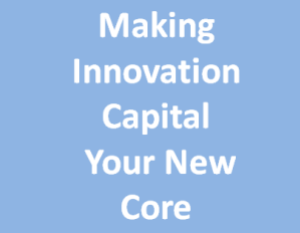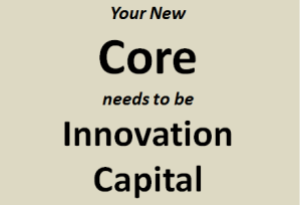 If someone came to you and asked the question: “tell me what makes up your financial capital?”
If someone came to you and asked the question: “tell me what makes up your financial capital?”
I expect you could answer this fairly comfortably.
It might need a little added help from your finance department but you could produce and show significant details that we are all ‘schooled’ to understand and generally have accepted, under common definitions and standard practice.
Our businesses are measured constantly on their financials, we produce a constant flow of reporting documents that provide useful insight and allow for a more informed judgement by present and future investors on the health of the company. We are ‘wedded’ to our financials and ignore the real value within our organizations of all the other critical capitals that generate and strengthen the business.
What if that same person came to you and asked instead: “what makes up the innovation capital of the company?’” could you answer this as clearly as the financial one – I would suggest most probably not. (By the way, if you feel you can then please let me know I would be more than interested).
We are focusing more on past performance and not future generating potential by staying fixated on just the financials within all that makes up our organizational capital
So what makes up our innovation capital and why is it important to know?
Should we care, does it matter? I would argue it does, increasingly so. Within the innovation capital lies the future of the organization and holds one of the real golden keys to the sustaining performance of the company, or not.
Continue reading “What makes up your innovation capital?”
 Perhaps we are failing to recognise the importance of our Innovation capital, stopping to ask how really valuable knowing this is to us?
Perhaps we are failing to recognise the importance of our Innovation capital, stopping to ask how really valuable knowing this is to us?

